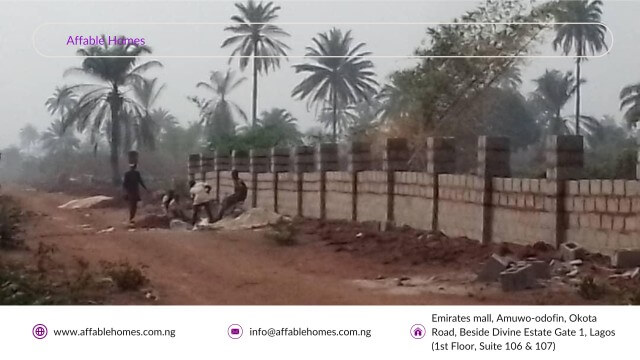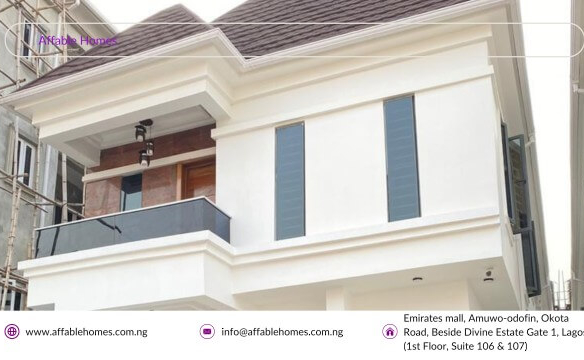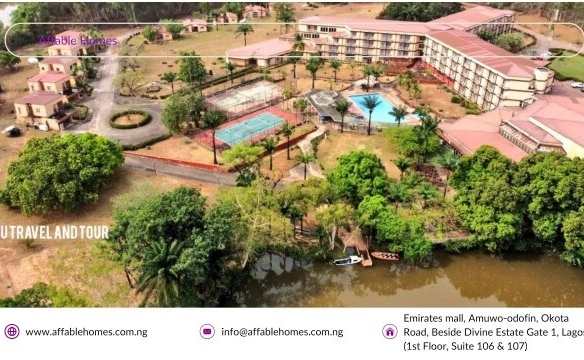Paying for hidden charges is almost becoming the norm in the real estate market in Nigeria. Buyers subscribe to a property at a particular price, only to pay much more than that at the end of the deal because of several hidden charges or dues.
These hidden fees can quietly inflate the actual price of the property, making it more expensive than expected. This ranges from unclear fees to key information being omitted by agents, the real estate market can be overridden with non-transparent practices.
In this article, we will be showing you how to avoid paying for hidden charges in real estate in Nigeria.
What are Hidden Charges
“Hidden charges” are expenses not disclosed during the initial stages of a real estate transaction. They might appear later in the form of documentation fees, development levies, legal fees, or commission expenses that can add up to 15–25% of the base property price.
One key reason Nigerian buyers often overpay is due to a lack of clarity from real estate agents and developers. Many fail to break down all the associated costs, either due to negligence or a deliberate attempt to close a sale quickly.
Also Read:
- What You Should Know About the Survey Plan in Nigeria
- What is the Difference Between Excision and Governor’s Consent in Lagos?
- Different Types of Due Diligence You Must Do Before Buying a Property in Lagos
Why are Statutory Fees Called Hidden Costs
Statutory fees are legally required payments, such as land survey fees, land registry costs, or charges for Certificate of Occupancy (C of O). While they are legitimate, they become “hidden” when developers or agents fail to disclose them upfront.
Some common hidden charges in Nigerian real estate include:
- Survey Fees: For mapping out your land.
- Legal Fees: Payment for legal documentation and verification.
- Agency Commissions: In most cases, the agency commission is usually 5-10% of the property cost.
- Development Levies: This is billed for infrastructure, which includes roads, drainage, and street lighting.
If all these aren’t communicated early during the process of buying, this can catch buyers unaware and significantly hike the total costs.

3 Proven Ways to Avoid Hidden Charges
1. Buy from only Real Estate Companies Offering Free Documentation
One of the smartest ways to avoid extra charges is to buy from trusted real estate companies that offer free documentation as part of their package.
Buying from such companies can save you up to 10–15% in costs that would otherwise go toward legal and survey fees. These developers often have structured payment plans and full disclosure of what is included in the total cost.
2. Ask About the “Development Fee” Upfront
Development fees are often the largest hidden charges in real estate properties. They can range from ₦500,000 to ₦5 million, depending on the location and estate standard.
To avoid surprises, always ask for a breakdown of development fees before making any payments.
Get a written document stating what the fee covers, for example, road construction, perimeter fencing, street lights, etc.
Also, verify that the fee is not recurring or tied to other future costs.
3. Negotiate Discounts if you are buying multiple plots at once
If you’re buying more than one plot or unit, use your position to negotiate. Many developers are open to giving discounts to bulb buyers. You can also be discounted on:
- Legal documentation
- Survey costs
- Agency commissions
Let’s take an instance where buying 5 plots instead of a plot can allow you to request a waiver or reduction on the fees for survey and processing. It is important to bring such a conversation up during negotiations, as this can save you hundreds of thousands of naira.
Red Flags to Watch For
When dealing with real estate in Nigeria, keep an eye out for these warning signs:
Unregistered Companies: Only deal with registered and recognized real estate companies. Ask for their company papers or government approvals.
Unclear Contracts: Contract documents without a clear breakdown of payments are a red flag. Every cost, from property price to survey, legal, and agency fees, should be clearly stated.
Verbal Agreements Only: If important costs are not written down, walk away. Always demand written documentation for future reference.
Frequently Asked Questions About Hidden Charges in Real Estate in Nigeria
Are hidden charges in real estate legal in Nigeria?
Not necessarily. Charges become “hidden” when they’re not disclosed upfront. Legitimate fees are legal, but unethical agents and companies may deliberately hide them.
Can I avoid paying agency commission?
Not always, but you can negotiate or go directly through the developer, especially in new estates.
How do I verify if a developer includes free documentation?
Visit their official website, ask for brochures, and request to speak with existing clients. Also, get written confirmation during negotiation.
Also Read:
- What is the Difference between C of O and Governor’s Consent in Lagos?
- Governor’s Consent in Nigeria: Everything You Need to Know
- Everything You Should Know About Freehold Land Title in Nigeria
Conclusion
Investing in real estate is one of the best decisions you can ever make in Nigeria, but only if you try to keep away from common mistakes like hidden charges. The key to a smooth transaction is transparency, doing due diligence, and carrying out deals with credible and reliable developers.
Whether you’re a first-time buyer or an investor, follow the tips above: choose developers with free documentation, always ask about development fees, and don’t shy away from negotiating if you are buying multiple plots.
To explore any of our real estate investment packages like land banking, retirement plan, kids education investment plan, trade apprenticeship plan or if you want to purchase some plots where you will have residential or commercial buildings, send an email to us at info@affablehomes.com.ng or call +2349134056630.
Click here to fill out the form and we will reach out to you immediately.




